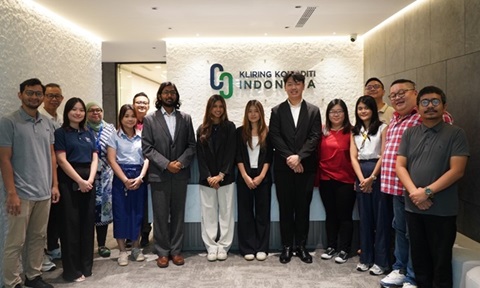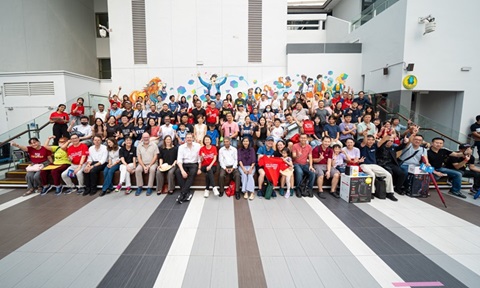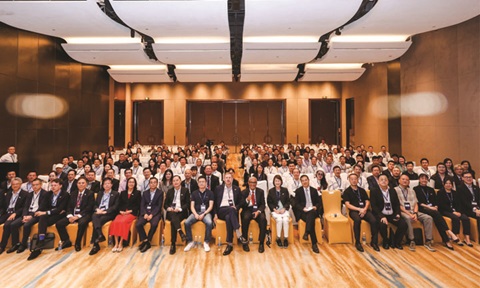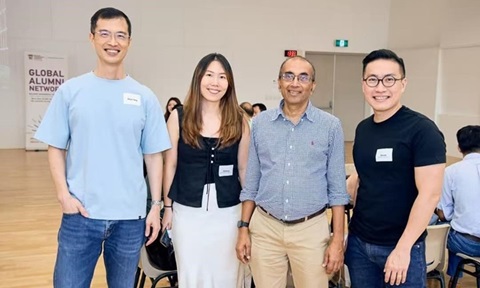5 reasons to do a Master's degree
Thinking of studying for a master’s degree but not sure if it’s worth the effort? Going back to school after some time in the workforce can provide you with hands-on learning experience, a confidence boost and a competitive edge.
Text: Junn Loh
① Gain new perspectives
Being invested in a full-time career, you could be so caught up in the daily grind of work and become clueless about emerging trends in society. That’s why it is important to find opportunities to step outside of your job to gain new perspectives that may aid in making better decisions at work.
“I was looking for a postgraduate programme that would provide me with new perspectives on how the government can partner businesses and external stakeholders to drive the sustainability agenda,” said Clare Chow, a current Nanyang Fellows MBA student and civil servant working on climate and sustainability policies at the Sustainability and the Environment Ministry.
Clare was particularly drawn to the Nanyang Fellows programme because it promises a unique combination of modules covering topics in both business and public administration. This meant that the learning does not stop at simply private sector business practices but extends into their application to public policies.
“Such exposure will be extremely helpful in formulating sustainability-related policies, as these policies often require a delicate balance of trade-offs between achieving the country’s environmental objectives and minimising regulatory impact on businesses,” she explained.
Moreover, discussions in class, which comprises students from private, public, and non-profit backgrounds, have given her refreshing new views which she believes will support a more holistic approach as she carries out her tasks at the workplace.
For Dr Koh Hau-Tek, a medical doctor by training and currently the Deputy Chief Medical Officer at Jiahui Health, a master’s degree in business undertaken six years ago was a platform for him to enhance his management skills and expand his horizons beyond the healthcare industry.
“The programme has provided me with the lens to see healthcare from multiple perspectives, helping me formulate solutions that can facilitate smoother delivery of healthcare services at my workplace. My thought processes for management are now more structured and with wider considerations,” Dr Koh said.

Similarly for Adrian Kee, a master’s degree allowed him the opportunity to update his knowledge on trends outside of his work environment. As someone with a computing background, a master’s in Knowledge Management at the Wee Kim Wee School of Communication and Information taught Adrian how data can be used and managed in a technologically driven society today and exposed him to newer concepts like business intelligence.
“Even though the course is not directly related to what I do, something like data use affects everyone, and being able to understand how it works helps give me a more comprehensive perspective on things that impact our everyday lives,” said Adrian, who studied part-time while juggling full-time work.
Adrian enjoyed the learning experience so much, he went on to take a second master’s degree in Media and Communication immediately after graduating from his first in 2020. “The second master’s was a chance for me to realise my dream to study mass communication.
Yes, studying part-time while working meant that I needed to sacrifice some leisure time and learn to manage my time well, but the entire journey was incredibly enjoyable and well worth it,” Adrian said.
② Broaden your skillset
Through an internship stint in his days as an engineering undergrad, Xu Cheng saw how there was a skill shortage at his workplace. This pushed him to “sharpen the saw” in preparation for his professional life in future.
“I realised that being trained in technology alone is not enough for me to excel at work. To be successful, I must have knowledge about project management and planning, which led me to complete a Master of Science in International Construction Management,” he said.
This thought was echoed by engineer Malaiyan Karthikeyan Srihariharan, who is currently pursuing a master’s degree in Power Engineering on a part-time basis.
“Working on challenging projects, I realised the need to enhance my skills by exploring electrical engineering in greater depth,” he said.
Similarly, Tang Lizhe, who is pursuing his master’s degree in Communications Engineering, said that “the thirst for access to forefront knowledge” was what motivated him to further his studies.
“I think a master’s degree helps in the improvement of my overall abilities, raising my competency to respond effectively in the competitive job market.”
③ Become a specialist
For Elleney Merynda Wasli, who already has a good grasp of IT through her bachelor’s degree training in computer science, studying for a business specialisation after some time in the workforce helps make her a versatile employee.

“I aspire to become a subject matter expert on digital economy policies. Having the relevant education is necessary to establish myself as a specialist who is also well-rounded.”
④ Improve your career prospects
“A master’s degree allowed me to be in tune with the latest developments in my field, increasing my subject matter knowledge and consequently, my job prospects,” said Zheng Yumin, who graduated with a Master of Science in Computer Control and Automation last year.
For Kendrick Chia, who is studying Biomedical Data Science, a master’s degree at a reputable university was a factor that cemented his decision. “I was looking for a way to upskill myself in data science and biology. NTU was the only university that offered a biomedical data science course with an AI specialisation. Plus, I also recall having a candid chat with some of my talent acquisition partners at my previous workplace about their hiring profile for a technical position – they said unequivocally they would prioritise hiring from NTU. That certainly left an impression so here I am.
⑤ Immerse yourself in a global environment
A well-connected world calls for a need to have a global perspective. A master’s degree can serve as an international immersion to hone the skillsets necessary to engage overseas partners successfully at work.
This was the case for MBA graduate Yusuke Utsumi, whose lack of experience with foreigners coupled with differences in culture and language used to put him on a back foot when engaging with overseas clients.
“NTU offered an affordable programme and an environment where we can interact with people from diverse backgrounds. Building relationships with classmates from around the world made it an irreplaceable experience,” said Yusuke, who is now a regional leader at an American multinational company, leading a team of 10 from different backgrounds.
While for Maple Yeung, a return to the books after more than a decade in the workforce made her relish the newfound friendships with fellow students at the S. Rajaratnam School of International Studies (RSIS).
“There were more than 30 nationalities in the school which allowed me to get to know people from different backgrounds. I really treasure the friendships that I forged.”
As to why she chose to complete a master’s programme at RSIS, Maple said interest was a push factor, and so was the course fee.
“I am interested in the political areas which RSIS focuses on. Also, admittedly, being a subsidised programme made it even more attractive.”
Related story:
This article first appeared in issue 2 of U, the NTU alumni magazine.







